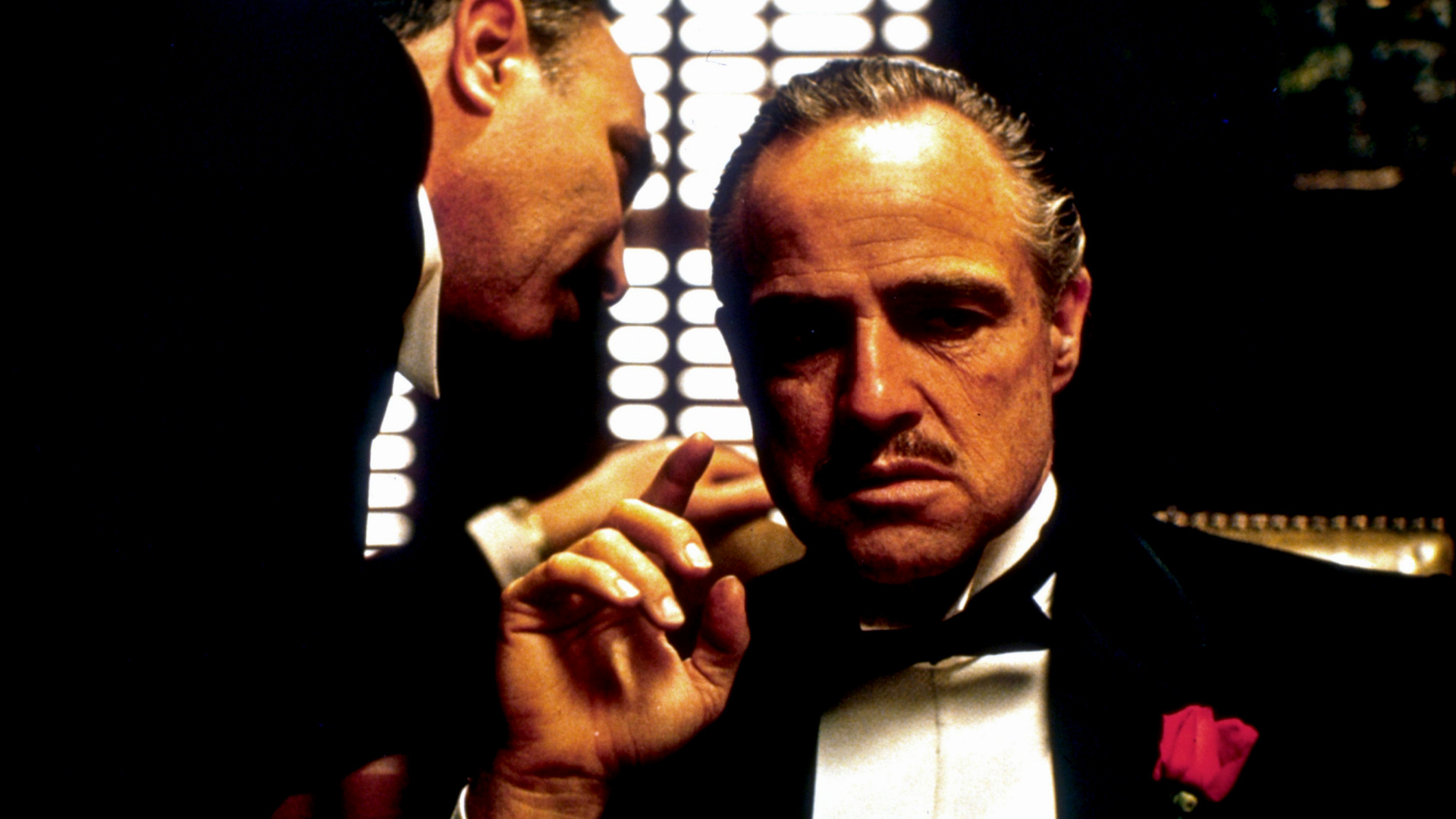by Luke Parker, sports editor
“I said to my wife for justice, we must go to Don Corleone,” a desperate man tells the Don, who sits calmly in his darkly-lit office. The man wants vengeance on the two men who assaulted his daughter – he wants them dead. “That I cannot do.” The Don replies, with an ease much too calm for the topic. “We’ve known each other many years, but this is the first time you ever came to me for counsel, for help. I can’t remember the last time that you invited me to your house for a cup of coffee,” the Don explains. But he ends up helping the man anyway, telling him to accept his gesture as a gift on his daughter’s wedding day.
That is how Francis Ford Coppola’s epic, The Godfather, begins, and already, the audience is a part of the Corleone family. No Sicilian can refuse a request on the day of his daughter’s wedding, so Don Vito (Marlon Brando) spends a large portion of the ceremony inside with the family lawyer, Tom Hagen (Robert Duvall), exchanging favors similar to the one above.
He eventually joins the party, which is in full throttle, and it is there that the other members of the family are introduced: Connie (Talia Shire) is the bride, who joyously dances throughout the party – it is the happiest we will see her for the rest of the film – there is Fredo and Sonny (John Cazale and James Caan), the two sons who run the business with their father, and finally, there’s Michael (Al Pacino). He, the youngest son, doesn’t live with the family. In other words, he is not involved, and it seems that he, and his father, try very hard to keep it that way.
Michael brings his girlfriend, Kay (Diane Keaton), to the wedding, and explains to her, and the audience, what it is his family does. The conversation is sparked by the entrance of a famed Italian singer named Johnny Fontane. Kay questions how Michael’s family could know him, and he tells the story: when Fontane was starting out, he was stuck in a contract that was stagnating his career. Vito and one of his men visited Fontane’s boss, and after negotiations, got him out of the contract for the fraction of the price. “How did he do that?” Kay asks. He tells her that his father made him an offer he couldn’t refuse – they put a gun to his head and “assured him that either his brains or his signature would be on the contract.”
This is the first glimpse we, the audience, get of the Corleone’s power. It won’t be the last, but believe it or not, we never see a victim of that power. This is because the film is presented in the closed world of the family – it is the only way the audience can become attached to these characters whom they would otherwise be afraid of – and when an order is given, that is the end of it. For example, we don’t see the desperate man’s wish get “taken care of” from the opening scene. We can only assume that the assaulters got what was coming to them. By leaving the violence up to the audience’s imagination, Coppola establishes the Corleone family as a much more haunting superpower than he could by showing it on screen. It is not until the end of the film that we see a Corleone order carried out. And when it finally arrives, it is as chilling, and strangely, as satisfying as the audience had probably hoped.
The interesting thing about the title is that it refers not to the father Vito, but to the son Michael. The Brando performance has become so iconic in film (though Pacino deserves just as much credit) that it is easy for anyone to assume that the story is about him. But it is not. It is about Michael, who, throughout the film, slowly creeps into the high chair of the family. For a large portion of the three-plus hour runtime, however, that is not the case. Michael tries to resist, and he does. For a while. “It’s my family Kay, it’s not me.” He tells his reluctant girlfriend, who eventually becomes the only character that wants to keep Michael from the mob life. It isn’t until the attempted assassination of his father and a dire situation in which he must rescue the defenseless Vito by relocating him into another hospital room that Michael accepts his fate. “I’m with you now.”
Michael gets revenge soon after, killing the corrupt police officer and a member of the family responsible for his father’s shooting. He is then sent to hide in Sicily, where he meets Apollonia. They fall in love and are married. It is difficult to understand what Michael is thinking here – he has Kay back in the states, and now he has a wife in Sicily. But maybe Michael just understands his situation better than the audience. He doesn’t know how long he is going to stay in Italy, and when he makes his return to America, he will be a part of the mob; his normal life is gone. Perhaps his last decision with a moral mind was to leave Kay out of his family’s affairs. That’s the most the audience can hope for.
A story of trust, love, vengeance, and destiny, Godfather remains one of the top movies of all time. Few films have had the impact Coppola’s has had on the perception of a lifestyle – it has shaped how many people view the mafia, and gives perhaps the most accurate take on how their lives are run.

